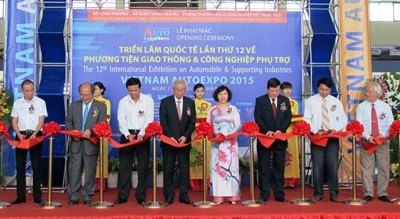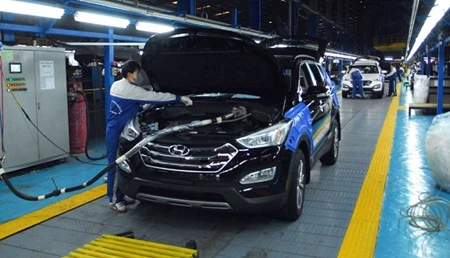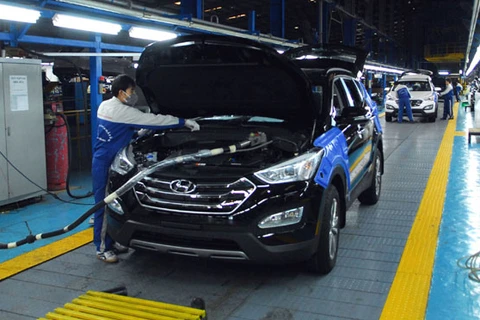Hanoi (VNA) - The Republic of Korea's Hyundai Motors and local Truong Hai Automobile Company (Thaco) have launched a mini bus manufacturing project with the total capacity of 10,000 units per year.
It’s the first-ever manufacturing project in Vietnam to build a new Hyundai mini bus model for export.
The first Hyundai minis buses will roll out from Quang Nam-based bus plant this year.
The bus model is the newest Hyundai model in the Vietnamese market, in cooperation with local car makers after series models of trucks, dump-trucks, buses and commercial cars were produced from 2011.
Thaco said it has invested over 2 trillion VND (8.5 million USD) to build a bus plant with total capacity of 20,000 seaters/sleeping buses and mini-buses per year.
The nation’s biggest automaker plans to build three more plants with the total annual capacity of 215,000 trucks, vans and commercial cars, and achieve a localisation ratio of 16 to 46 percent.
Thaco has so far manufactured and distributed vehicles of three foreign brands: Kia of the Republic of Korea, Mazda of Japan and France’s Peugeot.-VNA
It’s the first-ever manufacturing project in Vietnam to build a new Hyundai mini bus model for export.
The first Hyundai minis buses will roll out from Quang Nam-based bus plant this year.
The bus model is the newest Hyundai model in the Vietnamese market, in cooperation with local car makers after series models of trucks, dump-trucks, buses and commercial cars were produced from 2011.
Thaco said it has invested over 2 trillion VND (8.5 million USD) to build a bus plant with total capacity of 20,000 seaters/sleeping buses and mini-buses per year.
The nation’s biggest automaker plans to build three more plants with the total annual capacity of 215,000 trucks, vans and commercial cars, and achieve a localisation ratio of 16 to 46 percent.
Thaco has so far manufactured and distributed vehicles of three foreign brands: Kia of the Republic of Korea, Mazda of Japan and France’s Peugeot.-VNA
VNA























